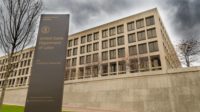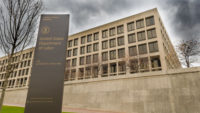
After several months of delays, Arizona State University on Jan. 8 declared it would no longer work with the development team attempting to build an approximately $400-million, mixed-use campus at the school's Tempe campus. Slated to be the new home for USA Basketball,the governing body for the sport in the U.S.
The project, dubbed USA Place, also was intended to provide space for retail, residential and a 220-room hotel. The development team was a combined effort of Concord Eastridge, Future Cities, Harris Sports & Entertainment and Sean Duncan, formerly of The Jerde Partnership. According to a statement released by ASU, USA Place was unable to provide deposits despite multiple extensions. After the university and development group agreed to a series of lease options on Jan. 7, 2014, USA Place missed a February closing deadline and an extension until May, according to ASU.
"Arizona State University has consistently required throughout the exclusive negotiating period that USA Place demonstrate its commitment to the transaction by making a substantial deposit to reinstate the option to lease. USA Place repeatedly pledged to provide a deposit to secure its commitments but never did so," according to the statement by ASU.
USA Place and its respective team partners did not respond to ENR's requests for comment.
USA Place released a statement to the Phoenix New Times through DRA Communications, Phoenix, on Jan. 8, however, saying it had deposited $1 million and planned an additional $4 million deposit by early February. ASU, however, stated those funds did not qualify.
"USA Place failed to deposit the required deposit in the escrow account. Instead, USA Place's potential equity partner deposited funds in an unrelated escrow account, which was under the unilateral control of that equity partner. Arizona State University had no access or right to those funds. Any suggestion that this escrow deposit satisfied USA Place's obligations is incorrect," read the ASU statement.
Mark Stapp, professor in the W.P. Carey School of Business at ASU, says the project simply was not feasible in financial terms.
"This was an urban, vertical, mixed-use project on an unsubordinated ground lease in a highly competitive sub-market. The combination of these factors and the plan itself made it difficult to finance. The assumptions about lease rates and absorption seemed out of line with the current and likely future market," Stapp says.
The 11-acre project was slated to include an Omni Hotel, a 4,500-seat event center, a 30,000-sq-ft conference center, 500 luxury apartments, 160,000 sq ft of retail and 200,000 sq ft of office space. Future Cities, Architekton and Miller-Hull Partnership worked on development plans. Turner Construction Co. is the general contractor.



